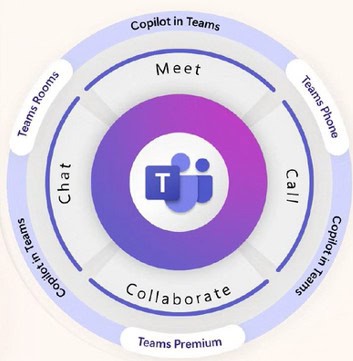Think back about a decade ago and how you connected with your colleagues. Most likely, your primary modes of communication were phone calls or emails. At that time, many of the collaboration tools we now consider essential were just beginning to emerge. The transformation since then has been remarkable.
According to Forbes, the average employee spends around 20 hours each week utilising digital communication tools, which accounts for over half of a full-time work schedule. While Acuity Training reports that email remains the dominant communication channel in the UK, nearly 45% of employees have shifted away from it. Instead, many are embracing alternative channels, with over 40% using WhatsApp, text messages, and phone calls, while 25% are engaging through video calls.
These shifts require organisations to drastically rethink their communication strategies, not just from a practical viewpoint, but also from a technological standpoint.
A Rapid Evolution in Communication
The speed of change in workplace communications has been so swift that many companies have struggled to implement a cohesive approach. At Resonate, we’ve observed that numerous organisations have fragmented communication’s setups, with various teams utilising different platforms for telephone, meeting rooms, and collaborative networking. Alarmingly, many organisations lack a complete understanding of their existing technology licenses, making it challenging to adapt or plan for the future.
In previous years, companies could rely on their established systems, but the shift toward flexible working post-pandemic has highlighted the limitations of many legacy communication infrastructures. Gartner reports that 55% of employees perform at a high level when given substantial flexibility, compared to just 36% of those who work full-time in the office. As demand for flexible work arrangements is not waning, organisations must provide seamless collaboration options to maintain productivity.
The Solution: Converged Communications
Microsoft has been at the forefront of collaboration solutions with offerings like Teams Rooms and Teams Phone. Teams Rooms enables seamless connections between physical and virtual participants in meetings, while Teams Phone integrates voice calling within the broader Microsoft Teams environment. In February 2023, Microsoft introduced Teams Premium, an enhancement for Microsoft 365 subscribers that includes personalized intelligent meetings, virtual appointments, and advanced management tools. Recognizing the need for a unified solution, these functionalities have now been combined into the Microsoft Teams Smart Workplace package.

This integration underscores the interconnected nature of modern communication tools, emphasizing the importance of a holistic approach rather than isolated components.
With this package, organisations can revamp their fragmented communication systems and embrace a flexible, interconnected future—all from a single platform and vendor.
Boosting Efficiency with AI
Today, every organisation is keen to explore how AI can enhance their technology, and Microsoft Teams Smart Workplace is no exception. In November 2023, Microsoft launched Copilot for 365, allowing its AI capabilities to be integrated into the converged communications suite.
Copilot can assist in various collaboration scenarios, such as suggesting follow-up questions after meetings, summarizing discussions with participant comments, and optimizing voice connections for virtual attendees. The advantages of incorporating Copilot into the communication mix are significant. According to Microsoft’s user feedback:
- 86% report increased productivity with Copilot.
- 81% find they can complete tasks more quickly.
- 71% experience reduced time spent searching for information.
- 84% prefer not to return to a workflow without Copilot.
A Platform for Tomorrow
Effective communication, boosted by AI, across diverse channels -regardless of when or where employees work -can significantly enhance productivity and organisational efficiency. But the benefits extend beyond mere functionality.
- When employees can work flexibly without sacrificing productivity, they tend to feel happier and more motivated, leading to improved talent retention and attraction.
- IT teams can manage, maintain, and enhance communication services more efficiently by dealing with a single platform instead of multiple systems.
- Furthermore, organisations can gain valuable insights into workforce communication and collaboration, helping to identify areas for ongoing improvement.
While Microsoft Teams Smart Workplace offers tremendous potential, its ultimate success will depend on solution design, deployment and support. The challenges of ‘converged support’ should not be under estimated, and many organisations struggle to identify whether issues are occurring, locally with devices or rooms or with the Teams platform itself, which is why Resonate offers managed support options for converged communications. Resonate’s pedigree is in designing, delivering and supporting communication and collaboration solutions, which means its automated tooling and engineer led support teams can quickly identify, resolve and improve services for Enterprise customers. Plus being at the forefront of converged communications technology, means we can help your organisation successfully navigate the future workplace.
A Case Study in Converged Communications Management
For a leading energy company, Resonate manages all unified communications tickets covering peer2peer calling, teams telephony, and conferencing. For this specific customer we manage multiple telephony platforms, regardless of supplier, and as part of the service hold two innovation days a year covering, latest technology and feature updates, how to get the most out of current investments plus a deep dive into current challenges and how technology can be used to resolve them. Get in touch to find out more about how we can help.




